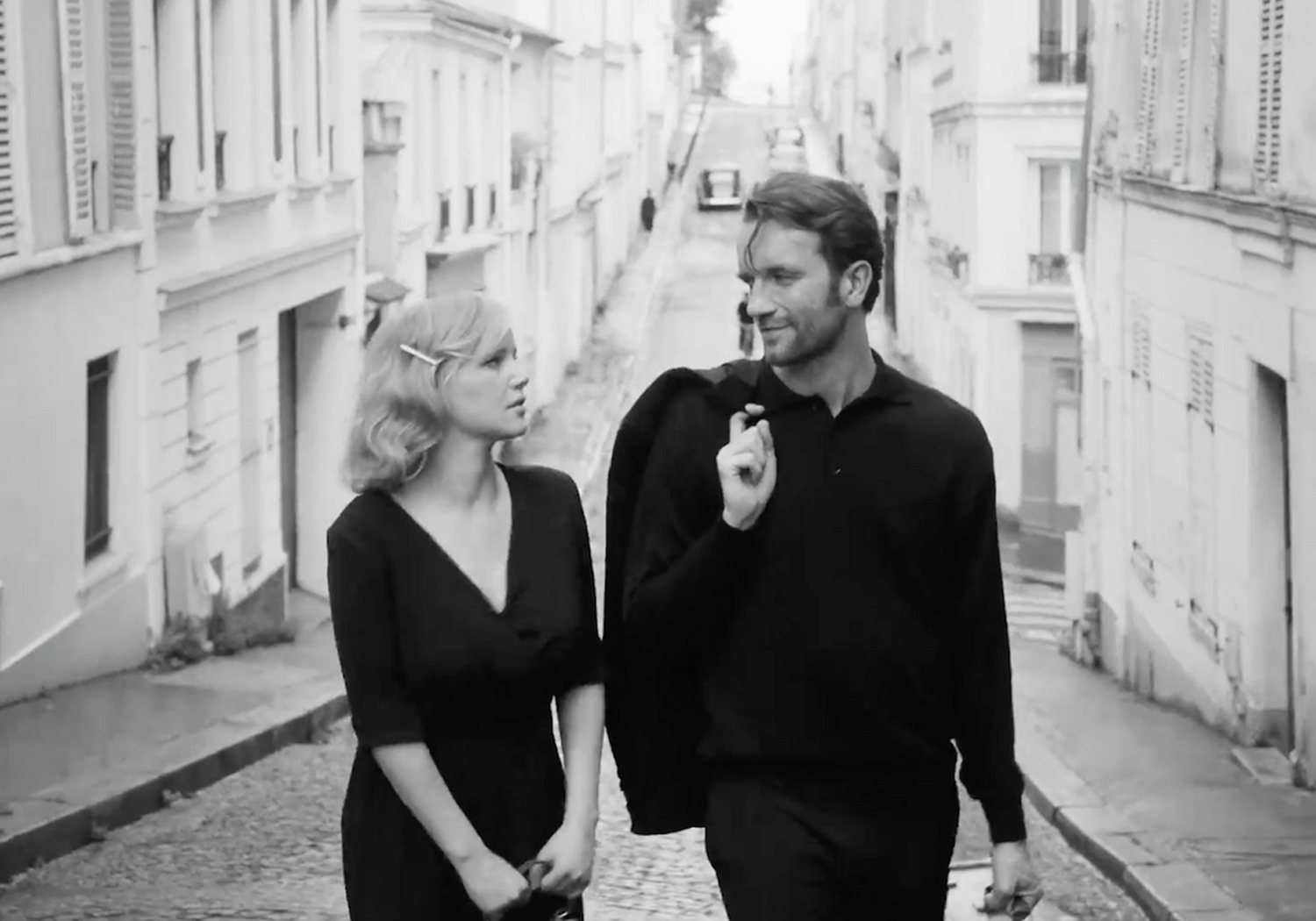3. 2. 1. ‘Cold War’ – Best Cinematography (Lukasz Kal), Director (Pawel Pawlikowski) and Foreign Language Film – Pawel Pawlikowski’s “Cold War” is AHFW’s #1 movie of 2018, so we are thrilled that a film about Zula (Joanna Kulig) and Wiktor’s (Tomasz Kot) passionate but troubled relationship earned three Oscar nominations. Of course, we also think that it should garner Best Picture, Score and Original Song, but hey, we’re happy that a black and white Polish film captured Best Cinematography and Director, no matter what the language.
Here’s our review:
“Cold War” – The Cold War lasted from the late 1940s to 1991, and Berlin was a metropolitan petri dish that unmistakably demonstrated the stark rift between East and West. Recent notable films like “Good Bye, Lenin!” (2003), “The Lives of Others” (2006), “The Debt” (2010), and “Bridge of Spies” (2015) feature this schizophrenic German city, as an integral character of their narratives, one that physically separates democracy from communism. Although each of the previously-mentioned films features a love interest, none of those movies are love stories.
Far from it, but writer/director Pawel Pawlikowski’s picture is. Berlin is not the centerpiece of “Cold War”, but the movie’s most pivotal moment occurs there, as the urban-poster child of political and cultural division becomes wholly symbolic of nearly every significant rift within Pawlikowski’s film, with two exceptions. First, the underlying passion between the leads Wiktor (Tomasz Kot) and Zula (Joanna Kulig). Second, the song, “Two Hearts, Four Eyes”, which appears in various forms throughout the picture, but one can also effectively argue that the track itself reflects the aforementioned divisions.
In the most beautifully-shot movie of 2018, “Cold War” showcases a fervent love affair between a music director (Kot) and a singer/dancer (Kulig) that carries markedly more endurance than a typical June to August fling. Wiktor and Zula meet in 1949 Poland, but summer is a forgotten memory. Crossing the country in a van during the dead of winter, Wiktor, Irena (Agata Kulesza) and Kaczmarek (Borys Szyc) look for singers to perform in a traditional Polish music production. Their company eventually camps at a rural “stately home”, but the snow has somewhat melted to uncover thick cakes of mud. Several aspiring performers audition, and Zula and another young woman sing together. Although our blonde-haired heroine is not as talented as the other, Wiktor says, “(She) has something. Energy. Spirit. She’s original.”
Sometime afterwards, the two begin a romance, and although their deep infatuation burns, Wiktor and Zula do not function – or communicate with each other – terribly well through the procedural, mundane grinds of a relationship.
For instance, Wiktor asks, “Tie or no tie,” to Zula before a party, and she responds, “Tie,” but he does not wear it to the event. It goes both ways, as Wiktor assures her that she has no reason to be jealous of his old girlfriend (Jeanne Balibar), but that does not stop Zula from letting an invented resentment ruin her evening.
Wiktor is older and even keel but naive, and Zula is the object of most men’s eyes, flutters at the attention but can strike or feel despondent when dealt an injustice or a perceived one. (Zula actually signals her feelings through dance – as an organic barometer – both on and off-stage.) The two don’t logically fit together, but when Wiktor and Zula dominate screen time, while enveloped by rich, vibrant baths of crystal clear and misty cinematic black and white, Pawlikowski compels his audience to hope for a continuous union. His intention is justifiable, because his parents inspired the characters of Wiktor and Zula, which are their names as well. In an Aug. 2018 interview, Pawlikowski said that the mechanics of his parents’ relationship exist with Wiktor and Zula on-screen, but their real-life story arcs do not.
He laughed, “The realist version would be really boring.”
Not “Cold War”. Pawlikowski’s film is a dreamy encounter of floating episodic vignettes that feel otherworldly, like floating in a welcoming sea of chocolate fondue. As Wiktor and Zula dip into fateful decisions on both sides of the Iron Curtain – that reflect distinctive music, dances, moods, and politics – they slip into temporary self-destructions or potent bonds over 88 entrancing minutes and sew a common thread over an infamous 20th century divide.
Image and Trailer credit: Amazon Studios




